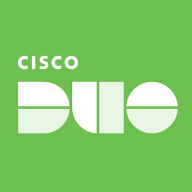

Cisco Duo and Microsoft Active Directory are top choices for security and identity management. Cisco Duo seems to have the upper hand for its ease of deployment and support, while Microsoft Active Directory stands out for its comprehensive features and perceived value despite higher costs.
Features: Cisco Duo is noted for its two-factor authentication, integration with multiple applications, and straightforward feature usage. Microsoft Active Directory is recognized for its directory services, group policy management, and single sign-on capabilities along with extensive enterprise functionality.
Room for Improvement: Cisco Duo could improve in scalability, detailed logging features, and advanced feature gaps. Microsoft Active Directory could enhance its cloud integration, reduce complexity, and provide smoother cloud experiences.
Ease of Deployment and Customer Service: Cisco Duo is praised for quick implementation and responsive support. Microsoft Active Directory has a more involved setup requiring significant IT resources but offers robust customer service.
Pricing and ROI: Cisco Duo is noted for lower setup costs and quicker ROI. Microsoft Active Directory has higher initial costs but justifies the investment with extensive features and long-term value.
I think Cisco Duo offers a good return on investment for startups, newer organizations, or those utilizing cloud-based applications.
I have not seen ROI with Cisco Duo; probably the opposite, because it impedes productivity time to be able to get into the system.
From my point of view, the biggest return on investment when using Cisco Duo is the security and the ease of setting it up.
The solution is really time-saving since I don't need to create users in each server or system manually, and user access control is streamlined.
They got back to us quickly, were nice, and gave us what we needed.
I would rate their support 10 out of 10.
I would rate support for Cisco Duo a 10, as I have never had a negative experience.
Support documents are available on the internet in every language.
If you purchase retail, the support will be more difficult because they will assess the priority or rating from the customer.
Sometimes support takes long to engage and resolve, extending over weeks or even months.
In my last contracting position, it was a large one for a major worldwide airline that had hundreds of thousands of devices that could use Cisco Duo, and it scaled very well.
I believe Cisco Duo is very scalable because it is cloud-based.
We started out with just the basics, getting a token, and then we changed to push, and now, we have added the offline mode.
Microsoft Active Directory scales effectively; I don't foresee any issues with that at all.
We have not had any Cisco Duo outages across all the companies I have worked for that utilize Cisco Duo.
When there is a bigger problem, we get notifications from Cisco Duo saying, 'Hey, we have a problem,' and that has helped us.
We have never experienced any downtime.
If you meet the installation requirements from Microsoft, it will be very stable.
With multiple domain controllers, stability is ensured.
I've been working with Microsoft Active Directory for over 3 years, and we've had no problems.
If you don't have internet access, you can't access your computer, only local access is available.
Cisco should allow easier integration with third-party equipment because Cisco's own equipment is expensive.
There needs to be consideration for how to launch Cisco Duo with a handheld device that is not native, where you can install the application.
Exporting and verifying group memberships require command line scripts, which isn't simple.
There are some features that need improvements in terms of ease of use and frequency of updates.
Sometimes, it can be overly complicated, and when you apply Group Policy in an Active Directory environment, sometimes those settings apply and sometimes they don't.
The pricing is acceptable to them.
Their website lists $3 per month per user for the Essential license.
One of my customers recently received a billing statement charging 3,600 US dollars for 100 users for one year.
For the cloud solution in our region, the pricing of Microsoft Active Directory is very high.
I consider Microsoft Active Directory expensive because if you buy this thing bundled with the Windows Directory Server, you get five user licenses for about a thousand euros, or a little bit less than this.
The pricing, setup cost, and licensing with Microsoft Active Directory is straightforward; you just buy the server and then have to buy the user CALs.
From a management perspective, I appreciate that we can enroll or control devices on the back end for people who get a new phone and forget to handle Cisco Duo properly and need to add a new device.
Our company benefits from all those features of Cisco Duo with confidence, and we feel very secure with it in terms of authentication of our logins.
The benefit of having a complete passwordless environment in our organization is that it's gotten people away from using the sticky note under their keyboard - which is a huge problem.
To assess the impact of Microsoft Active Directory's centralized domain management on security protocols and access permissions, Microsoft Active Directory itself has constraints with security because when we have a solution such as SSO or Single Sign-On, which makes it easier for users to log in, some parts have security openings.
One valuable feature is the centralized creation of IDs.
I can control all the devices in my domain by just changing the group policies in one place.
| Product | Market Share (%) |
|---|---|
| Cisco Duo | 3.5% |
| Microsoft Active Directory | 3.1% |
| Other | 93.4% |


| Company Size | Count |
|---|---|
| Small Business | 31 |
| Midsize Enterprise | 18 |
| Large Enterprise | 38 |
| Company Size | Count |
|---|---|
| Small Business | 20 |
| Midsize Enterprise | 7 |
| Large Enterprise | 20 |
Cisco Duo is a cloud-based identity security platform safeguarding critical resources for any user and device worldwide. Known for its ease of use, Duo offers seamless protection across multi-cloud, hybrid, and on-premises environments.
Cisco Duo is designed to secure access with identity-first protection and provides extensive visibility throughout an organization's identity ecosystem. Offering multi-factor authentication, Duo facilitates easy integration and management, allowing teams to protect data effectively on VPNs, applications, and networks. Its single-pane management improves security processes while enhancing trust, making it suitable for diverse IT infrastructures.
What are the key features of Cisco Duo?
Which benefits and ROI should users consider?
In industries like education and finance, Cisco Duo is widely employed to secure multi-factor authentication across platforms such as email, databases, and servers. Its integration capabilities with Microsoft 365, Active Directory, and VPNs like AnyConnect are instrumental in verifying user identities using mobile apps or OTPs, catering effectively to both remote and on-premise environments.
Active Directory stores information about objects on the network and makes this information easy for administrators and users to find and use. Active Directory uses a structured data store as the basis for a logical, hierarchical organization of directory information.
This data store, also known as the directory, contains information about Active Directory objects. These objects typically include shared resources such as servers, volumes, printers, and the network user and computer accounts.
Security is integrated with Active Directory through logon authentication and access control to objects in the directory. With a single network logon, administrators can manage directory data and organization throughout their network, and authorized network users can access resources anywhere on the network. Policy-based administration eases the management of even the most complex network.
We monitor all Single Sign-On (SSO) reviews to prevent fraudulent reviews and keep review quality high. We do not post reviews by company employees or direct competitors. We validate each review for authenticity via cross-reference with LinkedIn, and personal follow-up with the reviewer when necessary.